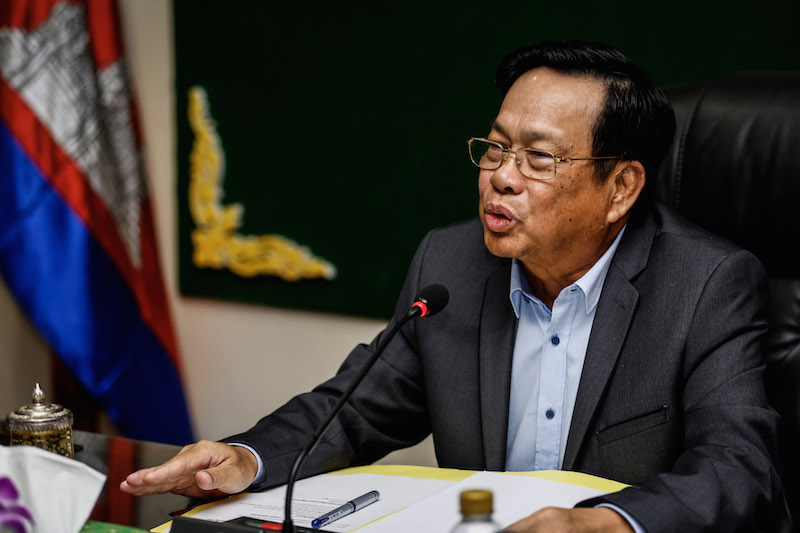Companies operating in Cambodia have seen the process of obtaining work permits for foreign employees become easier and more transparent since the Labor Ministry started a website in September run by the private sector, industry experts said.
But for the self-employed, the process can be an entirely different undertaking, with the task of obtaining the $30 permit ranging from painless to comical and some giving up on the application altogether.

“So on Monday I was told that I need to get a letter from my employer stating that I’m self-employed,” Lina Goldberg, author of “Move to Cambodia,” wrote in a series of Twitter updates last week on her ongoing application request.
For those with an employer, the new process is “transparent and efficient,” said Sandra D’Amico, vice president of the Cambodian Federation of Employers and Business Associations, in an email. “Without question, it [is] more efficient and convenient and improved compared to the manual processes.”
Previously, she said, there was a lot of “back and forth” between ministry officials and companies and the process stretched out unnecessarily. Now, “we are spending less time” tying down documents since E-Solutions took over the process, she said.
Still, the government should better define what companies must do to request exceptions to a cap on the number of foreign employees they can hire, Ms. D’Amico said.
For foreigners who have worked in the country previously without holding a permit, the online process requires a back payment of $100 per year, stacking up fines for some, said Anthony Galliano, director of Cambodian Investment Management. A grace period intended to encourage foreigners to register with the government stretched through the end of April.
Many applicants met the deadline but the Labor Ministry only approved them later, he said.
These applicants might still be required to pay the fine, he said. If the ministry did not acknowledge the grace period, there was a chance “the market would lose confidence and any further amnesty programs may not be successful,” he said.
For the self-employed seeking permits, such as freelance journalists, providing a letter from an employer was not an uncommon requirement in Southeast Asian countries, said Erin Hale, a freelancer and vice president of the Overseas Press Club of Cambodia.
Some self-employed foreigners in Cambodia had been approved without additional requests, so “[i]f they can iron out the kinks, the system would actually put Cambodia a step ahead of other Southeast Asian countries, as most make it very difficult for freelancers to work and reside in legally,” she said.
Labor Ministry spokesman Heng Sour did not respond to repeated requests for comment. Upon the website’s launch last year, he said the process would remain “basically the same” aside from the shift online.



